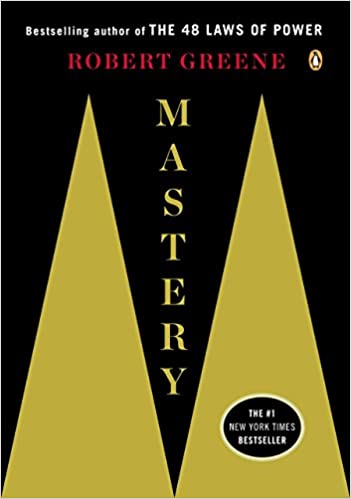There’s an old saying: ‘You can’t teach an old dog new tricks.’ That’s just not true. In this day and age, it’s not only beneficial to pick up skills, but it is often necessary. Age is a nonissue. Children aren’t the only ones who can pick up new languages. Young adults aren’t the only ones who can learn skills. Learning never ends. Pretty soon, you’ll expand your professional network and have a new skill to show off!

Mastery
by Robert Greene
⏱ 11 minutes reading time
🎧 Audio version available
Focus on One Thing at a Time
When inspiration hits, you’re suddenly overcome with an urge to learn a new language, practice an instrument, or fiddle with a coding language.
But, trying to learn several new skills at once can ruin that work/life balance. First things first: focus on one thing at a time. One skill at a time. You’ll have plenty of time to get to the rest later.
Even learning just one new skill can be overwhelming and an immersive, time-consuming experience. Overextending yourself, like by trying to learn two at the same time may backfire or even hold you back in both.
Now, with this one skill on the docket, take a step further to make it more manageable and separate it into bite-size goals. Leading us to…
Set Your Goals
If, for example, you want to learn ‘public speaking,’ that’s a fantastic goal, but it’s also vague. That’s why we said it’s important to divide your skill learning into parts– parts that are soon to come together into a well-oiled machine.
Setting a goal for learning is of utmost importance. Not just because it keeps you from being overwhelmed, but because it helps you learn faster, believe it or not.
If your desired skill is public speaking, then set the first goal: conduct a PowerPoint presentation. After mastering that, move on to leading a meeting, and move up to making speeches in front of crowds.
Learn From the Past
Here’s where learning later on in your career is such an advantage! You already know how you learn best. By now, you’ve probably figured out which method works for you. Are you a hands-on sort of learner? Do you prefer reading instead?
If you don’t know which learning style suits you best, it’s never too late to experiment. Watch videos. Seek out mentors. Read everything you can get your hands on.
Related: Why Successful People Never Stop Developing New Skills
Practice– A Lot
Those who can’t…should practice, and keep practicing. Find every opportunity you can to hone your newfound skill. It’s not going to happen overnight. Learning a new skill, like picking up a new habit, takes time. You have weeks to move past the novice stage; months before you become an expert.
At the end of the day, remember that learning a new skill, even if it’s in the middle or later part of your career rather than the beginning – takes time, patience, and a few tricks– that you now know– up your sleeve! Once you’re committed, though, there’s nothing you can’t learn. Career advancement, here we come!
What Is Snapreads?

With the Snapreads app, you get the key insights from the best nonfiction books in minutes, not hours or days. Our experts transform these books into quick, memorable, easy-to-understand insights you can read when you have the time or listen to them on the go.


